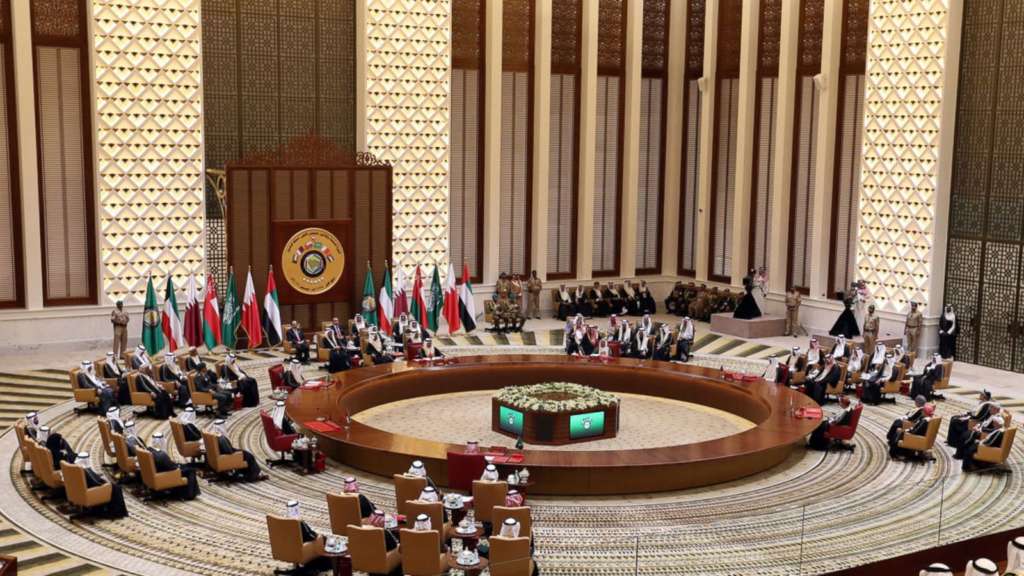Manama- The Gulf Cooperation Council and the United Kingdom announced on Wednesday the launching of a strategic partnership in the different fields of political, economic, defense, security and trade cooperation.
A communiqué was issued at the end of the first GCC-UK Summit held in Bahrain on the sidelines of the 37th GCC Summit. It said the partnership intended to enhance cooperation across a swathe of security, military and regional political interests, as well as increased trade.
Theresa May became the first British prime minister to take part in the annual GCC summit that brings together the leaders of member countries: Bahrain, Kuwait, Oman, Qatar, Saudi Arabia and the United Arab Emirates.
The two sides said they would “oppose and will work together to counter Iran’s destabilizing activities in the region” and called on Tehran to “engage the region according to the principles of good neighborliness, strict non-interference in domestic affairs, and respect for territorial integrity,” the communiqué said.
On regional cooperation, the communiqué said that the two sides have agreed there was no military solution to the region’s conflicts.
Regarding the war in Yemen, the GCC-UK communiqué reiterated demands that the conflict be resolved according to the GCC Initiative, U.N. Security Council resolution 2216, and “urged the Yemeni parties to engage with the U.N. in good faith” and adhere to the failed temporary truce agreed to in April.
On Syria, the GCC and the UK called on the international community to exert pressure against head of Syrian regime Bashar Assad, Russia and Iran to support a true political process that would include the different components of the Syrian society and end the ongoing violence.
“The leaders committed to continue working towards a sustainable political resolution in Syria that ends the war and establishes an inclusive government that protects all ethnic and religious communities, and preserves state institutions,” the communiqué said.
“The leaders reaffirmed that Assad has lost all legitimacy and has no role in Syria’s future. The international community needs to be united in calling for Assad regime and its backers, including Russia and Iran, to support a meaningful end to the violence, sustained humanitarian access and an inclusive political process,” it added.
The communiqué said that the GCC and British leaders strongly supported increased efforts to degrade and defeat ISIS in Syria, and warned against the influence of other extremist groups such as Al Nusra, Hezbollah and other sectarian organizations and Al Qaida-linked terrorist groups that present a danger to the Syrian people, to the region and to the international community.
“We express deep concern over the continuing deterioration of the humanitarian situation in Syria and condemn the prevention of aid distribution to the civilian population by Al Assad regime or any other party,” the communiqué said.
Regarding the Israeli-Palestinian conflict, the GCC member states and the UK strongly affirmed the necessity of resolving the ongoing conflict on the basis of a just, lasting, comprehensive peace agreement that results in an independent and contiguous Palestinian state living side-by-side in peace and security with Israel, based on the Arab Peace Initiative and UN resolutions. They urged the parties to demonstrate—through policies and actions—genuine advancement of a two-state solution.
On Lebanon, the leaders welcomed the election of a new president, called on all parties to strengthen Lebanese state institutions and emphasized the need to fight all terrorist groups operating in Lebanese territory, which threaten Lebanon’s security and stability.
The two sides also pledged to work together more closely on security, counter-terrorism, cyber security and defense.
They also pledged to enhance training and military cooperation through exercises that would develop GCC defense capacity and capability, in particular with regards to humanitarian and peace support operations, as well as maritime and border security.
